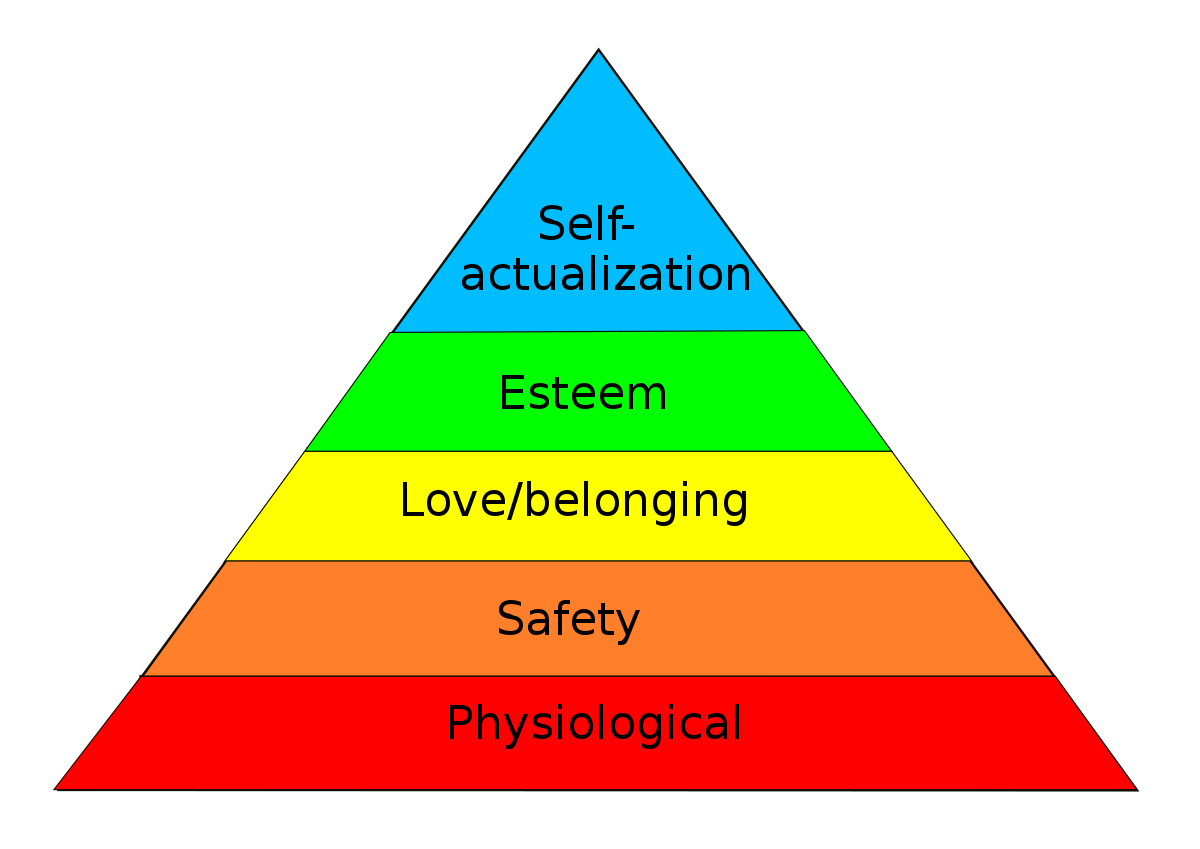
The headlines in 2017 were saturated with stress, ultimately perpetuating the issue by increasing anxiety and fear compounded by loneliness and isolation. The number of Americans with zero close friends, defined as having no one to talk to about ‘important matters,’ has tripled since 1985. Additionally, the General Social Survey found that Millennials, the most connected generation, appeared to rank the highest in loneliness.
In the height of irony, it seems that the more “connected” people are on digital platforms, the more disconnected they feel in person. A sense of belonging is an inherent human need. While Maslow's hierarchy of needs is common knowledge - it seems there is increasingly a crisis in love and belonging. Author Anne Snyder, in her essay, "Millocalists? The Real Story Behind Millennials and the New Localism," writes, “There is a growing craving for life to be lived offline, for human contact to be enjoyed with real handshakes, real meals around real tables, and real care for neighbors, knowing that in a pinch that neighbor will watch out for you in turn.”

The Problem with Ego-Media
The Internet has provided many social media tools to serve one’s self-esteem - Instagram, Snapchat, Facebook, Twitter. This is otherwise known as ego-media, platforms which are designed to highlight the best moments of life and voice personal opinions. Many movies, television shows, and parents encourage children to follow a career backed by passion. This combination of social media and encouragement has led to an unattainable idea of seeking perfection, living up to our fullest potential, and self-actualizing. But self-actualization without a base of belonging is unsatisfying and hollow.
Moving toward a ‘WE-Oriented’ Society
One trend demonstrating a shift in thinking is the idea that mindsets are evolving from ME-orientation to WE-orientation. The effect of satisfying the fundamental need to belong is rooted in this mind shift. Belonging to communities aids in forming a strong sense of self, developing professional success, and even promoting love.
An all-embracing sense of belonging can be obtained through participation in a variety of communities from social to professional:
• Professional Networks - as job roles become more specialized, the number of tailored communities across the globe is on the rise. YEC, Growth Hackers, Inbound.org are just a few examples of businesses and organizations helping men and women meet individuals with shared passions.
• Company’s Internal Communities - corporations are recognizing the key to employee retention includes a comfortable work environment. Facilitating a space for a brand’s community of employees to feel a sense of purpose and belonging at work is crucial.
• Co-working Spaces - with technology providing ease in working remotely, co-working spaces are popping up quicker than ever before. Remote workers and freelancers often experience loneliness and these areas create an opportunity to bridge that gap. The success of WeWork is not solely the result of selling physical spaces - they are selling a community with a sense of belonging.
• Social living - people are increasingly interested in knowing their neighbors. In crowded cities, companies like Common.com, which offers dorm style living, are gaining traction. With high housing costs, shared housing is also a way for people to save money.
• Social and affinity groups - young parents, hobbies, sports - people have different things that they love to do that give them a sense of identity and community - and they are looking for a way to share this passion, to be around people like them.
Companies that double down on creating communities that connect their customers will realize success in 2018. Communities that will remain strong in the long term will characteristically be defined by genuine conversations, a safe space, and level of authentic engagement. People should truly feel that they belong somewhere, and in the age of fast Internet, mobile phones, and VR - online is everywhere, anytime and for everyone.
Even so, in the age of the internet where communication tools are easily accessible, there is no suitable place online that mimics the elevated feeling of connecting with others in a deep conversation at an event suiting both passions.
Author: Tiffany Kenyon
Photo: Ben Duchac, via Unsplash.












